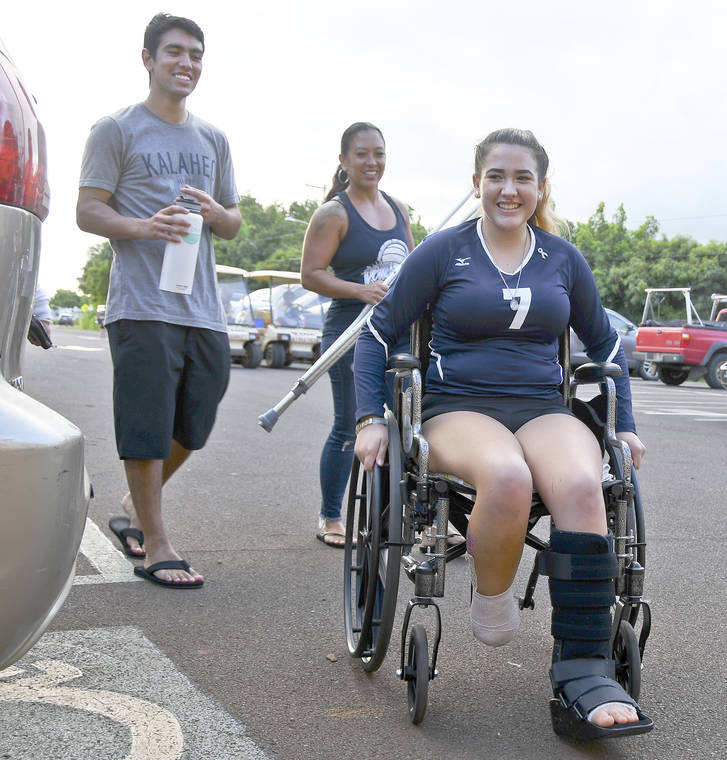Waimea High School volleyball player Shyann Freitas thoroughly understands the significance of participating in Hawai‘i High School Athletic Association activities more than most kids, because sometimes she had to watch from the sidelines.
Freitas lost her right foot in an all-terrain vehicle accident on Labor Day of 2018 near the old Koloa sugar mill before she eventually returned to the volleyball court in triumphant fashion.
That is the unique perspective Freitas had when she wrote a very-poignant letter about the adverse psychological effect of not being able to play has had not just on her, but, more importantly, the community she represents every time she wears a Menehune uniform (Forum, Sunday, Nov. 15).
The surge of COVID-19 numbers on the mainland and Hawai‘i, and the rising death toll, are the primary reasons the HHSAA chose to postpone fall sports until further notice.
Based on a number of different logistical factors at the federal, state and local levels related to COVID-19, there is no disputing that HHSAA’s decision to postpone the season was the correct call.
That doesn’t appear to be what Freitas’ letter is questioning, or the purpose of her letter to The Garden Island.
What the letter appears to be expressing is the frustration of someone who has worked feverishly to sport a Menehune uniform and fulfill a dream to play for the varsity volleyball team.
What can be taken away from Freitas’ letter is the increase in social distancing in our daily interactions with each other, and the lasting impacts of such.
This lack of interactivity isn’t just polarizing. It’s purely toxic, because sometimes sports or the institution of education these players represent are the only things binding a community together.
Psychological and emotional damage is often hidden and, as of now, there is no way to adequately quantify it.
What Freitas is talking about is a sense of community that has been lost throughout this pandemic. Instead of attending volleyball matches, the majority of these parents and players who would spend a lot of time together are now going their separate ways.
Athletics is one way a kid can achieve recognition at school, build self-esteem and learn self-efficacy through interaction with the kids and coaches at practices and the community at games.
For some of the players who are on the bubble for collegiate scholarships at smaller schools, their hope to fund their educations and continue their careers dwindles by the day unless their parents have adequate financing to join club-designated sports outside of school.
Unless you have the money or superior athletic ability to do that, your time to get recruited isn’t dwindling, it’s virtually run out.
In a society where we are divided by political ideologies, tax brackets and any other place where we focus on how we are more different than alike, sports were always a temporary refuge from that mess.
For a brief moment in time, members of the community can rally around success like the Waimea High School girls’ volleyball team achieved last year, when they placed second in the state Division 2 tournament and put many differences aside to bond with one another.
You don’t see this type of bonding in a place other than a sporting event, and that sense of community is something that we should not become socially distant from.
•••
Jason Blasco, reporter, can be reached at 245-0437 or jblasco@thegardenisland.com






Mr Blasco, get a grip on yourself. Compared to what hundreds of millions of children face around the world every day, week in, year out, (starvation/hunger/exploitation etc), these kids have it great. Write about something meaningful next time.